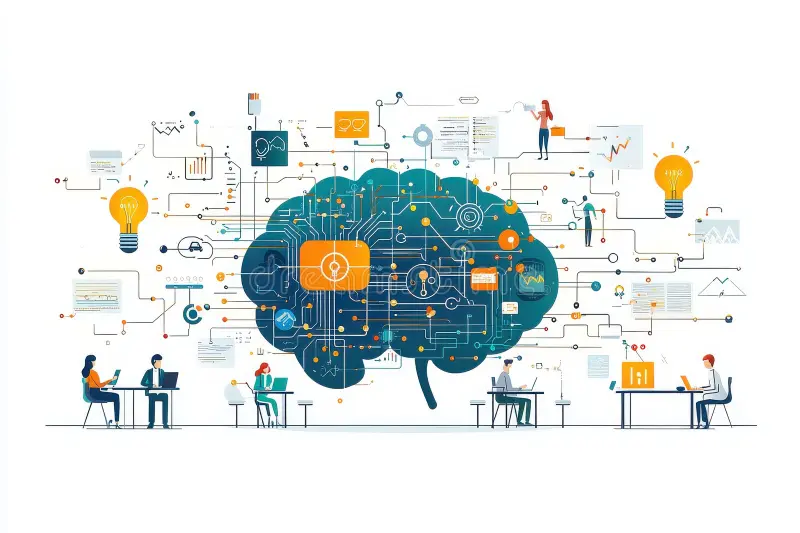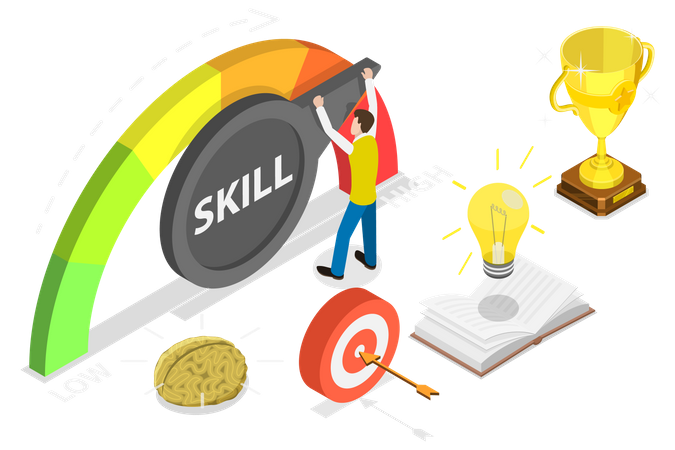Explore how AI-driven web operations blend human intuition with machine precision to reshape the webmaster’s role in 2025, creating smarter, adaptive, and ethically guided digital ecosystems.

Introduction: The Evolution of the Webmaster’s Brain
AI-driven web operations have completely changed what it means to be a webmaster. In the past, a webmaster was simply a digital caretaker — maintaining links, uptime, and basic content. But in 2025, the role resembles a hybrid cognitive system, blending machine intelligence with human emotional insight.
Webmasters today operate like a digital brain — absorbing data, interpreting signals, predicting issues, and shaping experiences long before users ever notice.
This evolution has created a new archetype:
In the early days of the internet, a webmaster was simply the guardian of a website — someone who ensured that links worked, pages loaded, and servers stayed online. But in 2025, that definition feels almost archaic. Today’s webmaster isn’t just maintaining a digital asset; they’re managing a living, evolving ecosystem of code, content, users, and algorithms.
-
Introduction: The Evolution of the Webmaster’s Brain
-
From Maintenance to Intelligence in AI-Driven Web Operations
-
The Rise of AI Precision in Modern Web Management
-
Why Human Intuition Still Dominates in AI-Driven Web Operations
-
The Cognitive Web: Infrastructure That Thinks
-
Human + AI Collaboration: The Operational Symphony
-
Ethical Oversight in AI-Driven Web Operations
-
Real Tools Transforming AI-Driven Web Operations
-
Training the Future Webmaster’s Mind
-
Conclusion
-
Internal Links
-
External (DoFollow) Links
-
Image Suggestions
The rise of artificial intelligence (AI), automation, and data-driven analytics has transformed what it means to be a webmaster. Modern web operations require not only technical mastery but also emotional intelligence, creative foresight, and strategic awareness. The best webmasters operate much like the human brain itself — constantly learning, adapting, and making split-second decisions based on a complex web of data inputs.
This convergence of human intuition and AI precision has given birth to a new digital archetype: The Intelligent Webmaster. One who blends creative instinct with machine efficiency to ensure that web ecosystems don’t just function — they evolve.
1. From Maintenance to Intelligence: The New Role of the Webmaster
The traditional webmaster’s job description was narrow: update the CMS, monitor site uptime, and fix bugs. But today’s digital environment demands a far more expansive skill set.
Webmasters now sit at the intersection of multiple disciplines — part developer, part strategist, part analyst, and part UX architect. Their work involves not only ensuring functionality but also predicting trends, integrating automation, and optimizing performance with surgical precision.
Key Shifts Defining the Modern Webmaster:
- From Maintenance to Orchestration: Instead of patching and fixing, modern webmasters coordinate automation pipelines and system integrations.
- From Reactive to Predictive: With AI-powered analytics, issues are anticipated and solved before they occur.
- From Custodian to Innovator: Webmasters now influence user experience, SEO, data architecture, and content strategy simultaneously.
In essence, the webmaster’s role has become more like a digital brain, interpreting millions of data points to make real-time adjustments that keep the web ecosystem stable and scalable.
2. The Rise of AI Precision in Web Operations
Artificial Intelligence has completely redefined how websites are managed and optimized. Tasks that once required manual intervention — performance testing, SEO audits, load balancing, and even content adjustments — can now be automated with astonishing accuracy.
AI brings precision, speed, and scalability to the table. For instance, machine learning models can analyze server logs and predict potential downtime before it happens. AI SEO tools can instantly identify keyword gaps and automatically adjust metadata. AI-driven UX systems can personalize the entire website experience based on user behavior.
Key Areas Where AI is Enhancing Webmaster Capabilities:
- Predictive Analytics: Tools like Google Cloud AI and Datadog use ML models to anticipate traffic surges or system anomalies.
- Automated SEO Optimization: Platforms like Clearscope or Surfer SEO leverage AI to enhance on-page optimization dynamically.
- AI-Driven Security: Systems such as Cloudflare and Darktrace detect and neutralize threats before they compromise the system.
- Performance Tuning: AI algorithms constantly test, benchmark, and optimize loading times and resource allocation.
AI precision allows modern webmasters to move from manual control to strategic oversight — freeing them to focus on innovation and experience design rather than firefighting operational issues.
3. The Power of Human Intuition in a Data-Driven World

Despite the precision of AI, human intuition remains irreplaceable. Data can inform decisions, but it can’t feel the emotional undercurrents of user experience, branding, or visual storytelling.
The most effective webmasters blend machine insight with human empathy. They understand that while an AI algorithm might recommend a design change for optimization, the human brain still perceives meaning through visual hierarchy, emotional resonance, and brand consistency.
Intuition Leads Where Data Ends:
- Recognizing when “optimized” isn’t “human-centered.”
- Understanding subtle cultural differences in user behavior that AI can’t interpret.
- Deciding when not to automate — maintaining the personal touch in customer-facing experiences.
Human intuition brings warmth, creativity, and strategic foresight — ensuring that digital efficiency doesn’t come at the cost of human connection.
4. The Cognitive Web: Blending Intellect and Infrastructure
Think of the modern webmaster’s environment as a cognitive network. Every layer — from front-end interfaces to back-end databases — communicates through data streams and feedback loops.
AI doesn’t just automate; it enhances the webmaster’s cognitive reach. Tools like AIOps (Artificial Intelligence for IT Operations), intelligent monitoring systems, and DevOps automation platforms serve as neural extensions, helping webmasters perceive and react to system changes instantly.
Key Components of the Cognitive Web:
- Self-Healing Infrastructure: Systems that detect and fix issues automatically.
- Continuous Deployment Pipelines: Automated builds, testing, and rollouts reduce downtime and human error.
- Adaptive User Interfaces: Web experiences that personalize dynamically through AI-driven insights.
- AI-Augmented DevOps: Integrating intelligence into every stage of the development lifecycle.
This interconnected web of automation mirrors the structure of the human brain — where every neuron contributes to a cohesive, adaptive intelligence.
5. AI + Human Collaboration: The Perfect Operational Symphony
At the heart of modern web operations lies a partnership — not between humans and machines as competitors, but as collaborators. The AI handles data precision and prediction, while humans bring strategy, creativity, and ethical oversight.
AI excels at:
- Pattern recognition
- Predictive analytics
- Process automation
- Error detection and correction
Humans excel at:
- Creative decision-making
- Emotional intelligence
- Contextual understanding
- Ethical judgment
When combined, they form an intelligent operations model that delivers stability, innovation, and growth. The webmaster of today functions less like a technician and more like a conductor, orchestrating a symphony between algorithms and artistry.
6. The Future of Web Operations: Hyper-Intelligence and Ethical Oversight
As AI capabilities expand, webmasters will evolve into digital intelligence managers — responsible not only for systems and code, but also for ethical data handling and user trust.
The future will bring hyper-intelligent ecosystems where every website operates autonomously to a degree — self-optimizing, self-protecting, and self-scaling. Yet this autonomy demands strong ethical frameworks to prevent bias, misuse of data, or degradation of human experience.
Future-ready webmasters will focus on:
- Transparency: Making AI-driven processes explainable and accountable.
- Data Ethics: Protecting user privacy and maintaining consent-driven personalization.
- Sustainability: Reducing the energy footprint of digital operations through efficient architectures.
- Continuous Learning: Upskilling to manage and audit intelligent systems responsibly.
The true evolution of the webmaster isn’t just technical — it’s moral, creative, and deeply human.
7. Real-World Applications: AI-Infused Webmaster Tools and Techniques
Modern webmasters are already leveraging a suite of advanced tools that blend AI intelligence with intuitive control:
- Intelligent Site Management Platforms:
- WP Engine, Pantheon, and Netlify automate deployment, monitoring, and scaling.
- Predictive SEO and Analytics:
- Tools like MarketMuse and Frase.io optimize content strategies through semantic AI.
- AI-Driven UX Design:
- Platforms such as Adobe Firefly, Uizard, and Figma AI generate design prototypes aligned with user preferences.
- Smart Security Management:
- AI firewalls and anomaly detectors like Darktrace or CrowdStrike Falcon keep web assets protected in real time.
These integrations are not just efficiency boosters — they represent a cognitive upgrade to the webmaster’s operational brain.
8. Training the Webmaster’s Mind: The New Skill Set

The webmasters of the future won’t just code — they’ll curate intelligence. Their skill sets are expanding to include:
- AI Literacy: Understanding how algorithms work, learn, and make predictions.
- Data Interpretation: Translating complex analytics into actionable strategies.
- Automation Strategy: Knowing what to automate — and what not to.
- UX Psychology: Designing human-centered experiences that complement AI-driven systems.
- Ethical Design Thinking: Ensuring innovation remains responsible and transparent.
Webmasters who can integrate these skills will not just manage websites — they’ll architect intelligent digital ecosystems that continuously learn and adapt.
Conclusion: The Hybrid Mind Behind the Modern Web
In 2025 and beyond, the true hallmark of a great webmaster isn’t just technical mastery — it’s cognitive versatility. The ability to think like a human, analyze like a machine, and act like both when the situation demands it.
The webmaster’s brain has evolved from a reactive tool into a hybrid intelligence system, capable of bridging the gap between intuition and precision, emotion and logic, creativity and computation.
As websites become self-optimizing and autonomous, the human touch will remain irreplaceable — not for coding efficiency, but for ethical guidance, creative vision, and emotional intelligence.
Ultimately, the future belongs to webmasters who understand that intelligence is not just artificial or human — it’s symbiotic.
And in that symbiosis lies the blueprint for the next era of digital excellence.


